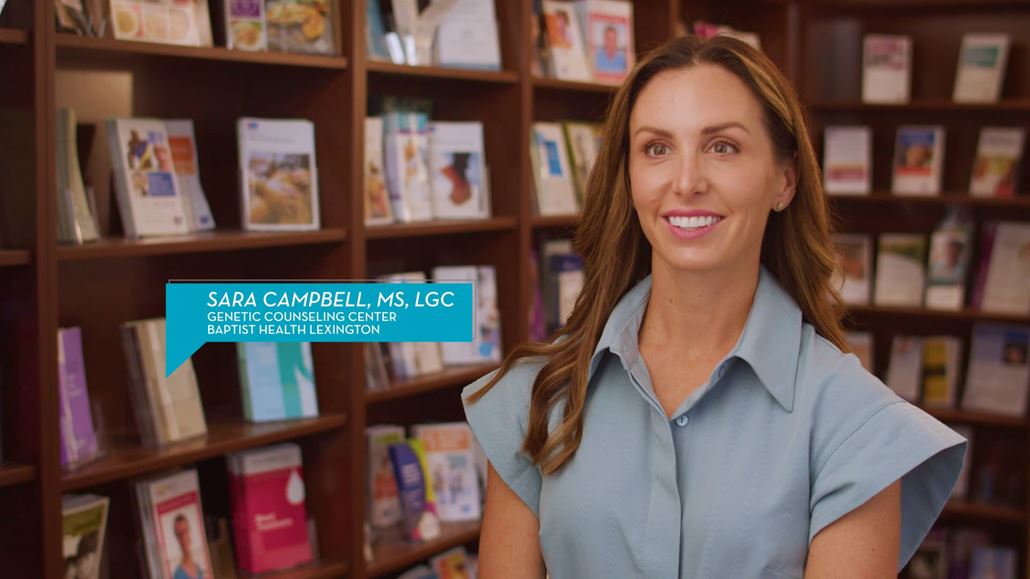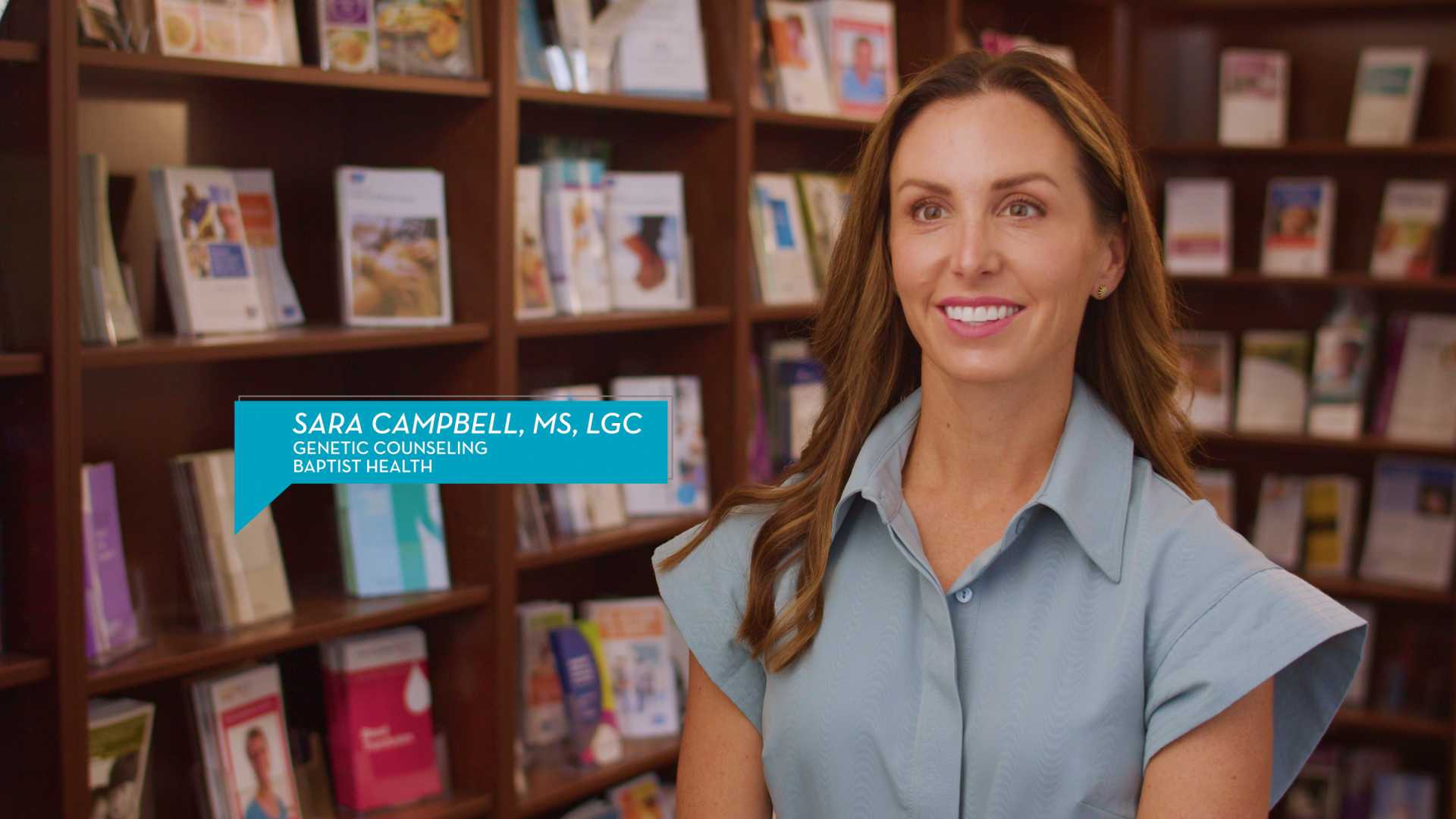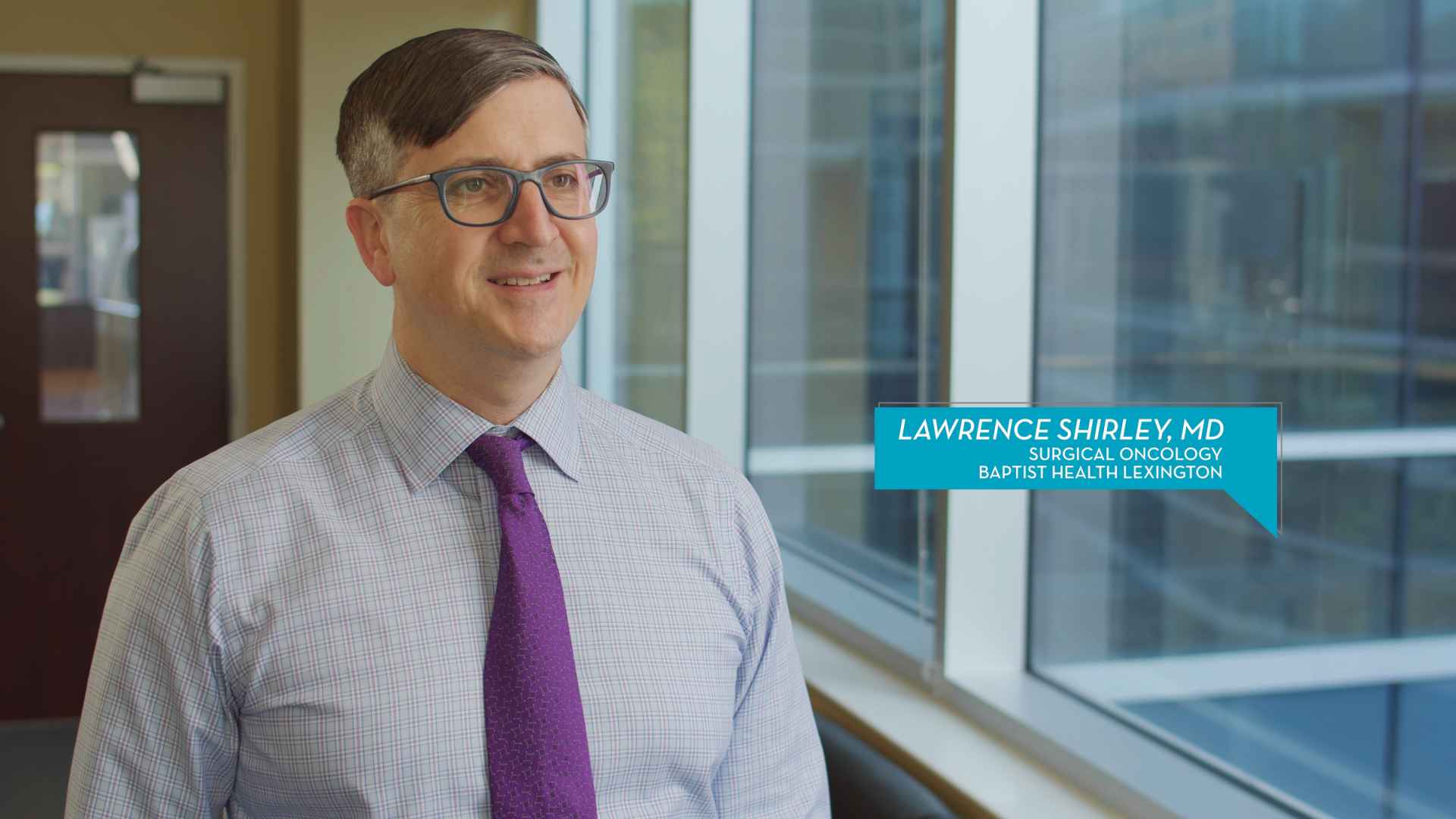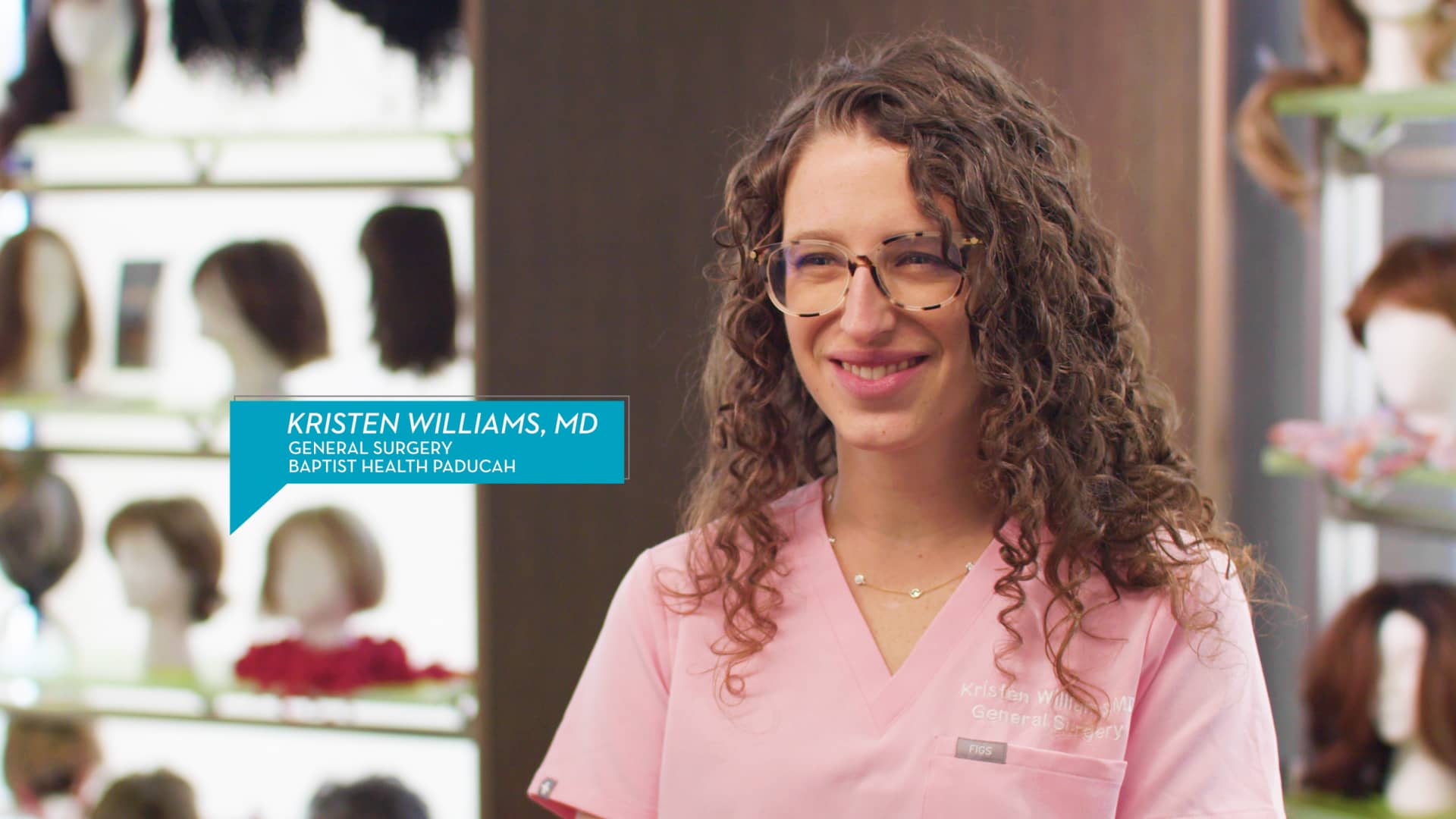Improving Outcomes with Cancer Genetic Testing in Lexington, KY

Improving Outcomes with Genetic Testing Health Talks Transcript:
Sara Campbell, MS, LGC, Genetic Counseling Center
Baptist Health Lexington
Debbie Barnes and Amanda Barnes Ward, Water Valley, Kentucky
Sara Campbell, MS, LGC:
At Baptist Health Lexington, we've implemented a Cancer Risk Assessment program where patients who are scheduled for a mammogram will receive a questionnaire. In that questionnaire, it asks a series of personal health history and family history questions.
Debbie Barnes:
I have a family history of breast cancer. My oldest sister had breast cancer and passed away at 47. I filled out a survey before my screening mammogram, and it came back positive that I should be screened for this specific gene.
Sara Campbell, MS, LGC:
If the lifetime risk for breast cancer is 20% or above, there is additional follow-up that may be warranted.
Amanda Barnes Ward:
My test results came back positive as well. I see a cancer risk management doctor. I have a screening mammogram every six months and a breast MRI every six months.
Sara Campbell, MS, LGC:
Baptist Health Lexington is at the forefront of risk assessment and proactively provides risk assessment to patients when they're scheduled for a mammogram. We can better identify high-risk patients and make sure patients are well informed about their risks so they can make informed decisions about screening and prevention, with the overall goal of improved outcomes when it comes to cancer care.



